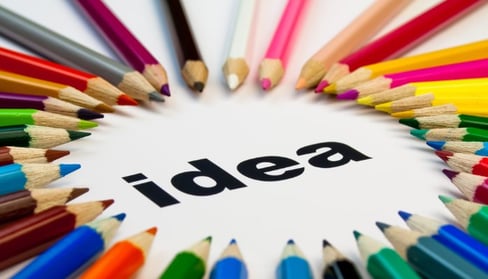Everyone has their own idiosyncrasies and habits to learn. Curiosity and the need to understand the world that surrounds us keep us going in a learning journey through all our life. Learning gives us knowledge, confidence, character, all the characteristics which define a person.

How do we learn? We learn by making connections. At the biological level, the connections are between neurons, a new experience makes them grow stronger. At the mental level, we make connections by memorizing, associating one idea with another, or by experiencing how objects and actions relate. And at the social level, the connections take the form of conversations, as we meet people and share ideas.
We don’t need to push ourselves to make these connections - they come naturally. We do it all the time, so why does learning often seem so hard? Usually, it comes from trying to control that natural process; the brain does not store items like a filing cabinet, so forcing ourselves to remember disconnected facts is not a natural way to learn. The more we enjoy the process of learning, the more we make rich and appropriate connections. Setting up the conditions to learn:
Being relaxed and alert, minds focused on the immediate experience; settingachievable goals for ourselves; being in a rich environment where there are plenty of opportunities. All these contribute to make relevant connections.
Conversations with others, especially with those who have greater knowledge and experience and can share these in ways that connect with our own understanding; holding conversations with other people who can bring different but related perspectives. Having interesting discussions, either spoken or in writing, allows us to connect and understand at all levels - of facts, ideas and experiences.
Conversations with ourselves, relating our previous knowledge and experience, finding new information, solving problems, and being confronted with different and challenging viewpoints.
Reflective conversation by thinking about what we have just learnt, focusing on what’s new and important, we are making the long-term links between the neurons that form our memories.
Learning in our own way: There is no universal “best” learning method, but generally we learn well when we set our own goals; make active choices about what we do and don’t want to learn; think about what we have just learnt and relate it to our knowledge. Most importantly, we learn well when we share and enjoy the experience. If something excites you, everything you read, you watch or you write, will be a learning experience that you love.

Choosing to be consciously competent will maximise the effectiveness of the learning journey, lingering in the process to adopt the mindset, engage in the learning process,
I would encourage students to learn through application more than just absorbing knowledge, this will increase active learning, applied adoption and longer term retention.
At the Universities I teach at the values of passionate teaching, applied innovation, flipped learning and intentional approaches fuels the way I teach and the development of this methodology.
What do you do, how do you think about this?
Dave Food
Prophetic Technology
Coventry University - FBL
Warwick University - WMG
Royal Holloway - PDS
M - 07775 861863
